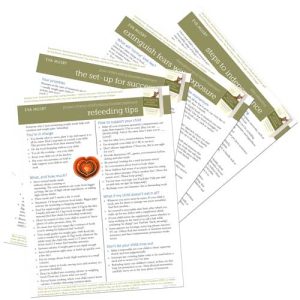Your cart is currently empty!

How long to persist with a meal is a crucial question that every parent struggles with while helping their child recover from anorexia, and indeed from most of the eating disorders.
If you stop a meal too easily in order to be kind, your child will not get the nourishment they need, nor will they progress through exposure to fearful foods. On the other hand, prolonging a meal may not produce more eating.
Some parents swear that long meal sessions saved their child’s life, while others say it set them back as it entrenched their son or daughter’s resistance .
I offer lots of ideas, pros and cons regarding meal duration in my resources (book, Bitesize audio collection, free helpsheets). Here’s what you need to know right away.
Not persistent enough? When we give up too soon
When my husband and I got the home coaching we had been begging for, the therapist gave us the feedback that we had given up too soon. There were signs that our daughter might manage one more bite. She’d looked at her plate. She’d asked questions. She hadn’t run away.
So keep supporting one more bite. And then another. Use all your skills of compassionate persistence. Put your own life on hold so that you can focus on supporting your child.
What are your meal-coaching skills like?
There are many tips to help your child eat. I take you through the main ones are in my book, my Bitesize audios, my workshops, and on mypage ‘How to get your child to eat‘.
Should I set a time limit for meals or snacks?
Some therapists recommend this, perhaps because they worked in inpatient units (where nutritional supplements or NG tube feeding are at hand). It only works if you can supplement uneaten food with some generous equivalent, once the set time is over.
It can be a useful strategy if your child would otherwise eat excessively slowly, toying with the food or spoiling it.
Other than, I’d recommend any time limit is only in your own head, to give you courage. When I felt fearful or hopeless I used to think, ‘I can manage 15mn…’ After 15mn I’d think ‘I’m still OK. I can manage another 5mn and see how it goes.’
Meal duration: how long is too long ?
If one meal is close to running into the next one, it makes sense to end it. It could be useful to have at least an hour before the next meal or snack, to change the mood. But some parents would disagree: they kept their child at the table for many hours and this set up clear expectations that served them well from then on. But I also know of parents where this made things worse.
Personally, I used to think one hour was reasonable and feasible, as long as my daughter was eating something some of that time. If she was completely stuck, and I saw zero signs of hope, I tended to try for at least 20mn all the same. I give you these numbers as an example, definitely not a rule.

Stop when you’re about to blow a fuse
To me, the real determinant of how long a meal should last is not about your child, but about you. As long as you feel able to get one more bite in, keep going. But if you’re losing patience, if you’re about to explode, to blame, to tell your child how much they’re ruining their life as well as your own, then stop. Stop before you say any of this.
Before anyone had taught me any skills, I tried shouting. I screamed at my ten year old, thumping the table, and my poor child gulped down the food in terror. It was a relief to see her ingesting something. But after that, she was armed for battle. If a parent pits themselves against their child, the child can always win by not eating. In her case, she was due to go into hospital anyway. In your case, if you’re in a similar situation, check out my resources for compassionate communication, so you can get back on track.
Should I use leverage / punishments if a meal isn’t finished?
In my view, this is a risky road to go down, as any use of carrot or stick can backfire. Again, when your child has an eating disorder they have the ultimate lever — to not eat.
A far more powerful route, in my view, is to develop your skills for compassionate persistence.
What to think of “Life stops until you eat (LSUYE)"?
This is a motto often quoted on anorexia/eating disorder parent forums. Initially it was aimed at parents: ‘Parents, put your life on hold until your child eats’. Wise advice. But nowadays it’s more often used to advocate keeping a child at the table for hours on end, and eventually using some form of punishment — such as removing access to a mobile phone.
The parents on forums who give this advice do so because they remember it working for them. They really want it to work for you. I’m worried it may not.
Some newcomers think that the only way to ‘do FBT’ (family-based treatment) is to do it this way — with marathon meals and punishments. Sadly, this misinformation causes some to rule out FBT, and they miss out on the most effective approach we have.
I speak to many parents who do not dare to speak up on forums, to say, ‘It has made things worse. My child is now at war with me. He is winning by eating even less, and has shut down all communication.’ They don’t dare because they see lots of advice to get tougher. These parents are relieved to find my resources because for them, compassionate persistence works.
So I am not a fan of punitive measures, and I am not a fan of marathon meals. Unless of course it works for you, in which case, hurray, and keep doing what works.
Should I offer an alternative food or be a brick wall?
It depends what, in your experience, happens when you offer an alternative. If your child eats it, then great. I’m assuming all that matters at this stage is that they have the nourishment they need, not a particular food.
But if your child finds umpteen reasons to not eat the alternative either, then you have learned that for them, in this phase, you should persist with what’s on the plate. This is often the case in the early days of treatment: the lack of options calms down the internal warfare going on in our child’s mind.
If you’re busy working on a fear food, then your priorities are different. If your child has stopped after a couple of bites in spite of your compassionate persistence, you could take away the food and bring in some easier equivalent, so they don’t miss out on nutrition. Managing a couple of bites of a food that inspires terror is a victory. Repeat the next day. More on the work of exposure to fear foods in Chapter 9 of my book.
What to do about the missing calories?
Sometimes I told my daughter that because she was short of her full lunch, I would make her snack a little bigger, and that would make her gulp down the rest of the lunch.
But not always. There are different phases. Sometimes you may judge it’s more useful to discretely add to the following meals without making a big announcement.
My son / daughter always leaves a few crumbs

It can be a source of conflict in a couple! One allows their child to leave those last crumbs because the meal has already taken a long time. Another insists that the plate is wiped clean, out of principle.
I think that experience rules. Does your child leave more and more, every time? Is it a slippery slope? In that case you need to tighten up. But often they leave the same tiny amount, meal after meal, and it does no harm. I imagine it’s like a peace offering to the god of eating disorders, or a way of maintaining a little bit of dignity, of holding on to a shred of autonomy. Later on, your priorities will change, and you can work on the crumbs if the issue hasn’t passed on its own.
What do I say to end the meal gracefully?
Once you’ve decided you’ve persisted as long as there’s hope of one more bite, and you now want to end the meal, do so as a wise, supportive parent would. Not a beaten one.
You could say, ‘OK darling. Let’s leave it at that. Let’s do [nice thing] to change the mood’.
Or ‘Let’s move on. Would you help me load the dishwasher?’
No drama, no blame, no resentment.
Try and create some free time for yourself to recharge before the next meal. Phone a friend, do some gardening, whatever works for you. I created some guided meditations, which helped me when I needed a quick shift to a better frame of mind.
Should I stop my child’s activities when a meal fails?
It depends if you think your child is short of calories. We didn’t want our daughter to go to school without breakfast to sustain her. And we had to make it clear that keeping her home wasn’t a punishment. I am guessing that part of her was distraught to miss out on something that distracted her well, and part of her was relieved because she felt weak.
We might not have cancelled a friend coming over, though. Or even a slow stroll in a shopping centre, for a change in mood. In the early days, calories and weight gain are the priority, but if at all possible we also attend to what makes life good, as good things are part of recovery.
I am shocked how many kids are allowed to keep up sporting activities when they have lost weight. Our children are tired. They secretly long for rest. Their bodies are struggling. Please remember that an eating disorder is as much about exercise as it is about eating.
Give me some hope!
Yes, it gets easier. With the odd blip along the way. You will get to the stage (in a few days or weeks) where your child sits at the table, asks if you’re sure they have to eat, then happily tuck in.
It’s not the end of the world if a meal fails. Most of us, during the eating disorder recovery journey, have had meals fail. It doesn’t mean all the next meals will fail. They’re just blips. Your child will recover anyway. Don’t make a failed meal into a drama. Your child may be secretly scared and your confidence helps them keep going.
And if not?
Should your child stay stuck, don’t put up with this for weeks. Get more help. Learn more about refeeding tips (e.g. Bitesize audios, my book, or this page with lots of tips to make meals work). If that doesn’t help, it’s not your fault. You need more support. Request more from your clinicians.
Hear it all again in this video
I created this video (‘Stuck & not eating!’) to show you all your options. There is no simple rule to how long to persist. The reason a family-based approach works is that you are wise parents who know your child and can make a pretty good guess what’s likely to work at any time.
Onwards
* Meal duration: how long to persist: my post on this same topic for FEAST *
Last updated on:






LEAVE A COMMENT (parents, use a nickname)